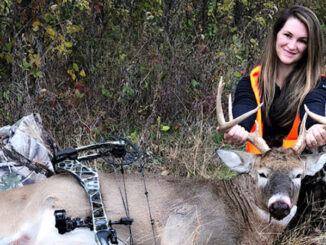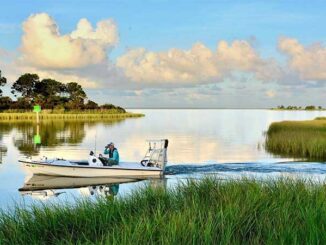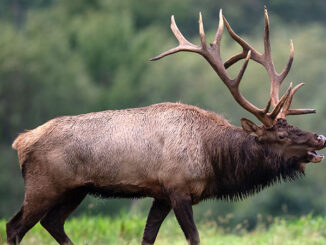
Cost of federal permit would climb $10 under proposal
The U.S. Senate Environment and Public Works Committee in February OK’d bills that would reauthorize the North American Wetlands Conservation Act and increase the cost of the federal duck stamp, Ducks Unlimited reported.
The measures, one of which would increase the duck stamp fee from $15 to $25, are supported by DU.
“Many areas in the United States are experiencing tremendous droughts,” DU CEO Dale Hall said. “The wetlands conserved and restored with NAWCA and duck stamp recharge the underground aquifers that many Americans rely on for drinking water.
“These are important programs for our country’s waters, wetlands and wildlife.”
The measures still must be taken up by the full Senate for action.
The NAWCA reauthorization bill (S. 741) has 14 bipartisan co-sponsors led by EPW ranking member David Vitter of Metairie and committee chair Barbara Boxer of California.
NAWCA conserves functioning wetlands, thus diminishing floods, preventing soil erosion and improving water quality, DU said.
“Every federal dollar provided by NAWCA must be matched by at least $1 from non-federal sources,” the DU press release said. “Because the program is so effective, NAWCA funds are usually tripled or quadrupled.
“Since its inception, more than 4,500 partners have been involved in more than 2,200 NAWCA projects across North America.”
Sen. Mark Begich of Alaska is the lead sponsor of S. 1865, which would raise the price of the federal duck stamp to $25.
“At its current price, the buying power of the federal duck stamp has never been lower over its 79 year history,” DU said in its press release. “Since the federal duck stamp’s enactment in 1934, the price has only been raised seven times. It has been 23 years since the last increase to bring the price of the stamp to $15, the single longest period without a price increase in the program’s history.
“In the meantime, land values have dramatically increased.”
DU pointed to Minnesota, in which the average land cost has risen from $400 an acre to $1,400 an acre since 1998.
The group also pointed out that the Congressional Budget Office found that, because the federal duck stamp is a user fee, increasing the stamps cost would have no net impact on federal spending.
Hall vowed to use all of DU’s influence to ensure the bills get a fair hearing by the full Senate.
“NAWCA and the federal duck stamp are two programs fiercely by sportsmen and women; DU will work to keep up this momentum in order to get these bills to the Senate floor for votes,” Hall said.


